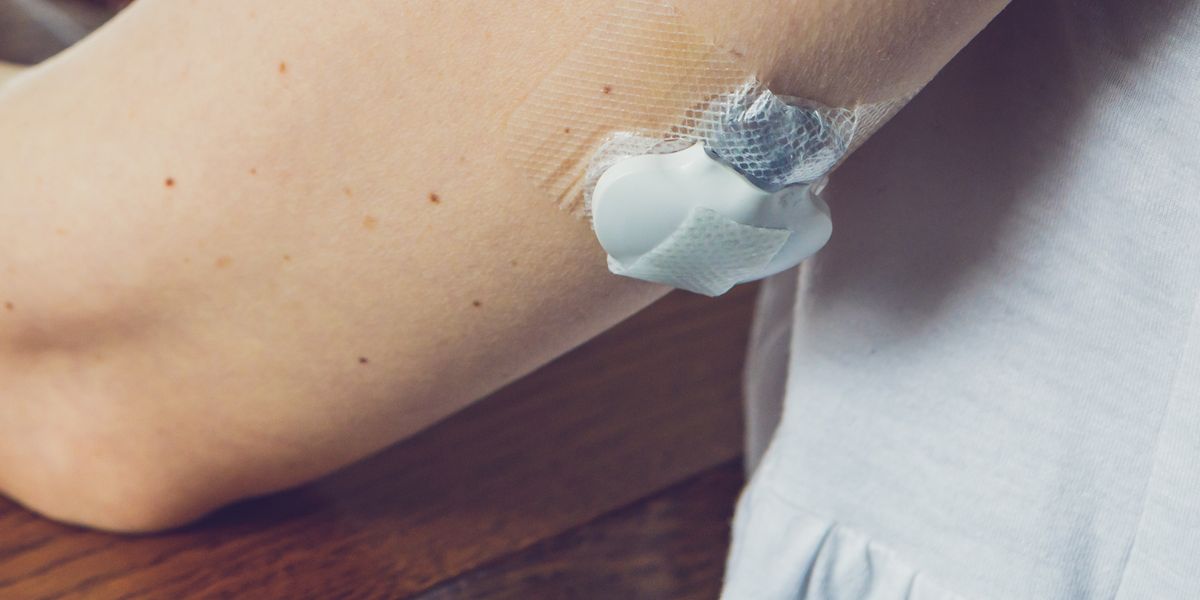Managing diabetes whilst going through menopause can feel like a twin challenge for most women due to the combined effects that each condition can have on the body.
The best way to remain in control is by knowing what to expect so that you can prepare yourself for the unique challenges that may lie ahead.
What is menopause?
Menopause is the general term that describes the end of a woman’s menstrual cycle – in other words, the cessation of monthly periods – that usually occurs around the age of 50
Periods usually come to a gradual halt, becoming less frequent and with longer intervals between each one before stopping altogether. But for some women, the end of menstruation can be sudden.
It is this period that is referred to when a woman is said to be ‘going through menopause’.
For many women, the end of menstruation can lead to a number of physical and emotional symptoms, which can be detrimental to health.
Levels of the female sex hormone oestrogen decrease, causing the ovaries to stop producing an egg each month (ovulation). Reduced oestrogen can result in women experiencing hot flushes, night sweats, mood swings and vaginal dryness.
However,
changing hormone levels can also trigger spikes and falls in blood sugar levels, which for women with diabetes can lead to a number of problems and may pose a number of health risks.
I have both diabetes and menopause – what should I expect?
Menopause will not affect every woman in the same way, however, there are a number of common effects.
Fluctuating blood sugar levels
As mentioned above, changes in the levels of oestrogen and progesterone – hormones that affect how your cells respond to insulin – can lead to unexpected fluctuations in your blood sugars, making it harder to keep diabetes well controlled.
Weight gain
Putting on weight is a common issue for some women who go through menopause and after menopause, and can increase the need for insulin or oral diabetes medication
Infections
Diabetes raises the risk of urinary and vaginal infections, and this risk increases further during and after menopause as less oestrogen in the body makes for even more ideal conditions in the urinary tract/vagina for bacteria and yeast to thrive in.
Sleep problems
Hot flushes and night sweats after menopause can cause sleepless nights. This, in turn, can have a negative impact on blood glucose control.
Sexual dysfunction
Over time, high blood sugar levels can damage the nerves of in the vagina and cause thinning and inflammation of the vaginal walls, making it more difficult for women to become aroused or achieve orgasm. This problem is often exacerbated by vaginal dryness, a common symptom of menopause, which can cause pain during sex
How can I better manage menopause and diabetes?
While menopause can make it harder for you to keep your blood sugars levels in check, the good news is that there are a number of simple steps you can take to improve menopause management and reduce the impact it has on your diabetes control
These include:
Healthy lifestyle changes
Eating a healthy, balanced diet, avoiding smoking, reducing alcohol intake and keeping physically active are all healthy lifestyle factors that can help you feel your best after menopause, as well as helping to keep your diabetes well controlled.
Test your blood glucose regularly
Testing blood sugar levels more often than usual during the day, and occasionally during the night, will help you to see how your blood sugars respond to menopausal symptoms such as hot flushes and changes in mood ( anxiety, tiredness, etc).
Note down your blood sugar readings and symptoms and provide this information to your doctor as they may use it to adjust your diabetes treatment plan as needed. For example, if your blood glucose continues to rise, a higher dosage of your diabetes medication, or new medication may be needed.
Regular HbA1c testing may also be advised by your doctor to get an idea of what your average blood sugar level has been over the previous 8-12 weeks.
Seek help for menopausal symptoms
If you’re struggling to cope with vaginal dryness and pain, sleeping problems, hot flushes or other menopausal symptoms, remember that support is available. For example, to restore vaginal moisture your doctor may recommend a vaginal lubricant, or if weight gain is a problem, expert advice from a dietician may help.
Hormone replacement therapy (HRT) is also an option for some women. This form of treatment is used to relieve symptoms of menopause by replacing the female hormones (oestrogen and progesterone) no longer produced after menopause.
Get assessed for heart disease risk
Menopause triggers metabolic changes that can cause your weight to increase. For women with diabetes, weight gain can elevate their risk of heart disease even more, as well as complicating management of blood sugar levels.
As your doctor about regular blood pressure and cholesterol screening as both health factors are important for controlling diabetes and heart disease risk, but can be affected by menopause.
Protect your bones
Over time, diabetes can cause a number of bone and joint problems, particularly in women. Problems such as bone thinning can escalate during and after menopause, so it’s important to build up strength in the bones. This can be done by adding calcium and vitamin D supplements to your diet and getting your bone density assessed.




